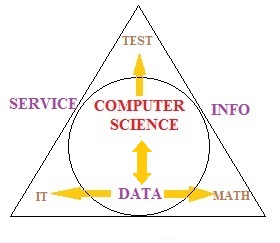Gaming and Simulation
Homework Help & Tutoring
We offer an array of different online Gaming and Simulation tutors, all of whom are advanced in their fields and highly qualified to instruct you.
Gaming and Simulation
Gaming and Simulation
What is your first thought when you hear games and simulations? Is it fun, spare time, or something else? Games and simulations can also be designed to help people learn different things such as a new language or mathematics. These games and simulations are not only fun but can also serve a purpose. Their first objective is to teach, and entertaining is a bonus. There are many different types of learning games, such as quiz shows, computer and video games, board and card games. Simulations help verify that learners acquired and mastered skills needed to complete tasks successfully.
A Brief History
The intensive development and field-testing of games and simulation for classrooms in America first began in the mid-1960s. In its 1971 edition, the Hom's Guide to
Simulation Games for Education and Training already contained descriptions of around 400 educational games and simulations examples including some learning classics like Make Your Own World, Democracy, Ghetto, They Shoot Marbles Don't They?, Bafa Bafa, and Powderhom. Only a few years later, in the 1977 edition of the Hom's Guide, the number of game descriptions tripled, and teachers slowly began to identify with the role of an Inner-City Simulation Laboratory and Teaching Problems Laboratory elementary school character called Pat Taylor. As the information technology advanced, so did the game and simulation designs. Nowadays, teachers can even use immersive 3D technologies to help their students learn new skills and competencies with the most advanced hardware and software solutions available. Regardless of the mobile and computer technologies, some old cardboard games are still trendy among all age groups both for learning and entertainment.
What is the Difference between Games and Simulations?
Games and simulations are user-controlled, interactive multimedia tools with dynamic elements. Even though these two terms are very similar, there are still certain distinctions between them.
Games are designed as contests in which opponents operate under specific sets of rules in order to obtain specific goals. There are two types of games: academic and non-academic. The aim of academic games such as war games or anagrams is to help learners adapt knowledge and skills easier and faster and apply these to solve new problems. Non-academic games such as monopoly or checkers are designed for entertainment and can be regarded as trivial looking for the education point of view. These games, however, still play an essential role in the development of children as they support social interactions. Time spent playing games usually is connected to the real-time continuum. Games can be designed in a variety of settings which include villages, towns, cities, countries, world maps, space, or anywhere else. Characters in games are the result of their designer's imagination.
Simulations are designed as products which mimic the appearance or effects of something. Unlike games that tend to be stylized and suppress details, simulations are specifically designed to include and elaborate on a variety of different features. Simulations usually mimic some real-world scenarios such as flights, some medical procedures, space exercises, deep water explorations, oil drilling techniques, and many more. The inner-time in a simulation usually is speeded up and progresses quickly so that the user can get a sense of their actions’ outcomes much sooner. Simulations can happen in the past, present or future depending on their purpose.
Games and Simulations in Schools
More and more children begin using smartphones or computers at very young ages. However, this use usually involves watching cartoons or playing games that have no purpose other than occupying children’s attention. Children’s games are one of the essential activities in the development of children because they help them to learn about the world that surrounds them. Children’s games can be efficiently used in schools as a method of teaching/ Games can easily motivate children to actively participate in lessons. These games can either be played as peer-to-peer group activities or as parts of individual activities during classes. Using games should not only be limited to physical education classes where children play sports games such as basketball or volleyball. Games can also help children learn math through different knowledge quiz games. Games can also be used to help children learn a new language or understand the importance of being eco-friendly and caring for the environment and biodiversity.
References
Boyle, E. A., MacArthur, E. W., Connolly, T. M., Hainey, T., Manea, M., Kärki, A., & van Rosmalen, P. (2014). A narrative literature review of games, animations and simulations to teach research methods and statistics. Computers & Education, 741-14. doi:10.1016/j.compedu.2014.01.004
Eliana Marcia Martins Fittipaldi, T., Francisco Vidal, B., Alexandre de Pádua, C., Bruno Pérez, F., & Márcia Hiromi, Y. (2017). Behavioral finance and games: simulations in the academic environment. Revista Contabilidade & Finanças, Iss 0 (2017), (0), doi:10.1590/1808-057x201804830
Harding, C., Garrett, S., & Wang, S. (2015). Game-playing and understanding decision-making within legal frameworks: the use of computerised simulation. Information & Communications Technology Law, 24(1), 1-15. doi:10.1080/13600834.2014.996322
Hernández-Lara, A. B., & Serradell-López, E. (2018). Student interactions in online discussion forums: their perception on learning with business simulation games. Behaviour & Information Technology, 37(4), 419-429. doi:10.1080/0144929X.2018.1441326
Nkhoma, M., Calbeto, J., Sriratanaviriyakul, N., Muang, T., Ha Tran, Q., & Kim Cao, T. (2014). Towards an understanding of real-time continuous feedback from simulation games. Interactive Technology And Smart Education, (1), 45. doi:10.1108/ITSE-03-2013-0005
Pelletier, C., & Kneebone, R. (2016). Playful Simulations Rather Than Serious Games: Medical Simulation as a Cultural Practice. Games And Culture, 11(4), 365-389.
Ritzhaupt, A., Poling, N., Frey, C., Kang, Y., & Johnson, M. (2016). A phenomenological study of games, simulations, and virtual environments courses: What are we teaching and how?. International Journal Of Gaming And Computer-Mediated Simulations, 8(3), 59-73. doi:10.4018/IJGCMS.2016070104
To fulfill our tutoring mission of online education, our college homework help and online tutoring centers are standing by 24/7, ready to assist college students who need homework help with all aspects of gaming and simulation. Our computer science tutors can help with all your projects, large or small, and we challenge you to find better online gaming and simulation tutoring anywhere.
College Gaming and Simulation Homework Help
Since we have tutors in all Gaming and Simulation related topics, we can provide a range of different services. Our online Gaming and Simulation tutors will:
- Provide specific insight for homework assignments.
- Review broad conceptual ideas and chapters.
- Simplify complex topics into digestible pieces of information.
- Answer any Gaming and Simulation related questions.
- Tailor instruction to fit your style of learning.
With these capabilities, our college Gaming and Simulation tutors will give you the tools you need to gain a comprehensive knowledge of Gaming and Simulation you can use in future courses.
24HourAnswers Online Gaming and Simulation Tutors
Our tutors are just as dedicated to your success in class as you are, so they are available around the clock to assist you with questions, homework, exam preparation and any Gaming and Simulation related assignments you need extra help completing.
In addition to gaining access to highly qualified tutors, you'll also strengthen your confidence level in the classroom when you work with us. This newfound confidence will allow you to apply your Gaming and Simulation knowledge in future courses and keep your education progressing smoothly.
Because our college Gaming and Simulation tutors are fully remote, seeking their help is easy. Rather than spend valuable time trying to find a local Gaming and Simulation tutor you can trust, just call on our tutors whenever you need them without any conflicting schedules getting in the way.






